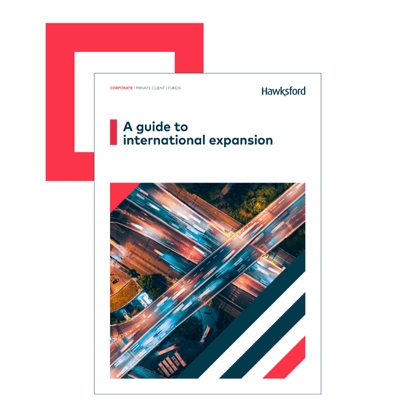Introducing London’s capital market
The London capital market is the largest international stock market in the world and was recognised as Europe’s most active equity market in 2021. It raised £49.4 billion through initial public offerings (IPOs) and FPOs in one year alone and achieved over double the number of transactions of Stockholm, which is the next most active European exchange.
The UK offers several markets, including the LSE, made up of the premium and standard segments; the AIM market; and other specialist markets including the AQUIS Stock Exchange and the International Stock Exchange headquartered in Guernsey.
London represents a wealth of possibilities for companies, offering access to capital, an experienced community of advisors, a balanced regulatory approach and a high profile.
For a competitive edge in the market, international holding companies can be introduced at different stages. Jersey-based holding companies are particularly beneficial for London IPOs for an array of reasons; one of these being that Jersey has a stellar track record in having the greatest number of international companies listed in the FTSE, as well as benefitting from a tax-neutral environment.
Why invest in the UK?
Despite recent tribulations such as the pandemic and Brexit, the UK’s economy remains the fifth largest in the world, with many drivers such as the local talent and access to other markets contributing to its position.
The UK’s workforce is the most qualified of any major economy in Europe. This is largely due to the exceptional universities producing high calibre graduates, liberal labour laws and the accommodating immigration rules attracting the best talent from other parts of the world.
Despite leaving the EU, the UK remains one of the most connected global economies and benefits from trade agreements, as well as the recent development of eight freeports in England. The UK also presents investors with a competitive tax regime and funding schemes to foster innovation, as well as tax credits and a reduced corporation tax on revenue from patented inventions.
Furthermore, the UK is recognised as a global leader in the green industrial revolution, as the first major economy to take on the legal obligation to achieve net zero emissions by 2050.
The pull of the Hong Kong market
Meanwhile, in China, Hong Kong’s market is prospering. More than 9,000 businesses with parent companies outside of Hong Kong have set up business operations in the city, truly demonstrating the professional pull to this financial destination.
Hong Kong works on a competitive and simple tax system where there is no tax on dividends or interest, as well as no VAT. The two-tiered tax system fosters a favourable business environment, with lesser tax paid on the first HK$2 million. Furthermore, the government offers foreign companies the same funding schemes, support and benefits as local enterprises.
In the last five years, the number of foreign start-ups and fintech businesses entering the Hong Kong market has skyrocketed. There has been a 68% increase in the number of start-ups from 2017 to 2021, enabling companies to hire more staff across a variety of industries.
Another reason Hong Kong is seen as an attractive market for foreign investors is the high levels of profit repatriation. Investors can also benefit from free dividend distribution, as well as the availability of interim dividend.
Seeing Hong Kong as a gateway
Hong Kong is just one of the cities and jurisdictions within the Guangdong-Hong Kong-Macao Greater Bay Area (GBA) and is home to 86 million residents. All cities within the region complement each other through capital investment, scientific research and production, which strengthens the GBA’s standing as a highly global business environment.
By establishing business activities in Hong Kong, entering the wider Asian market becomes more attainable, as it acts as a buffer. To do so, many enterprises chose to enter into a joint venture with a Chinese partner; form a private limited company in Hong Kong; open a branch office in HK; or set up a representative office (RO). While opening an RO expedites establishing an Asian presence, it does not allow any revenue-generating activity, making it the least popular choice.
The Hong Kong SAR Government has set up a dedicated fund on branding, upgrading and domestic sales, known as the BUD Fund. This specifically aims to help businesses promote sales and operate in Mainland China, member countries of the Association of Southeast Asian Nations (ASEAN) and all economies with which Hong Kong has signed Free Trade Agreements – totalling 37 economies.
To qualify for the BUD Fund, it’s necessary for a company to have a valid business registration, substantial business operation and it must not be listed in Hong Kong. Companies can receive up to HK$6 million in funding for up to 40 projects.
At Hawksford, we deliver efficient administration and financial services to corporations, entrepreneurs and advisors across the globe. Our extensive expertise in Asia includes business establishment, tax and accounting, as well as HR, payroll and immigration services and applications.
Click here to give our recent webinar a watch and learn more about the growing opportunities of the London and Hong Kong capital markets.

Updated on



